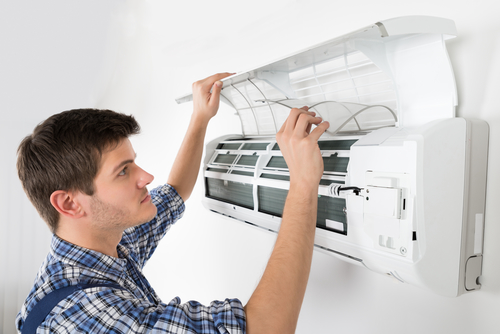We all have to make decisions at times in our lives and choosing an AC specialist might be one of them. When selecting a new air conditioner for installation, always look for an expert heating and air conditioning technician who is skilled and what to do. One of the things to remember is that an ideal technician would choose the appropriate system based on the size of your home. This is of vital importance because it would function better and maintain productivity during the system’s lifetime. Before selecting a new air conditioning system get to know all the features. Research the productivity levels of the unit you are about to purchase. You can learn more about the air conditioner’s productivity levels by viewing the SEER.
Here’s How SEER Can Help You

SEER stands for “seasonal energy efficiency ratio”. The method used to decide SEER is quite difficult. With SEER the final measurement averages the total of energy utilized by the system in differing environments with distinct humidity levels and temperatures during the cooling season. Sounds like whirlwind of words for someone who knows nothing about the SEER. Understanding the SEER types might help clear things up a bit.
SEER Types
The higher the SEER measurement the more costly the system will be. You see, the technology employed by SEER air conditioners will chill your home while consuming very little energy.
In looking at whats required , the least SEER for air conditioners is 14. For maximum reductions, you would need to inquire about one that is more elevated than 14. In addition, you would require to look for a SEER of 16 or more in order to get the most out of your investment.
It is beneficial to ensure that a technician aids you in selecting it. As size and suitable installation are essential to the productivity levels. Contact our professional team, we have vast experience in AC repair and maintenance. If you are thinking about making home improvements this can be one of them.
Frequently Asked Questions on Choosing an AC Specialist and Understanding SEER Ratings
1. What should I look for when selecting an AC specialist?
When choosing an AC specialist, prioritize finding a certified and experienced technician. Ensure they have a good reputation, verified by customer reviews and testimonials. They should be knowledgeable about different air conditioning systems and able to recommend the right one based on your home’s size and specific needs.
2. How do I determine the right size of an air conditioner for my home?
Selecting the right size AC unit involves calculating the BTU (British Thermal Unit) requirements for your space. An AC specialist can perform a detailed load calculation considering factors like room size, insulation, window exposure, and local climate to ensure optimal performance and efficiency.
3. What is SEER, and why is it important?
SEER stands for Seasonal Energy Efficiency Ratio. It measures the cooling output of an air conditioner divided by the energy it consumes over a cooling season. Higher SEER ratings indicate better energy efficiency, which can lower your utility bills and reduce environmental impact.
4. What SEER rating should I look for in an air conditioner?
A minimum SEER rating of 14 is required, but for optimal energy savings and performance, consider units with a SEER of 16 or higher. High-SEER units use advanced technology to cool efficiently, making them worth the investment in the long run.
5. How can a higher SEER rating benefit me financially?
Higher SEER-rated air conditioners consume less energy, resulting in lower monthly electricity bills. Although high-SEER units might have a higher upfront cost, the savings on energy bills over the system’s lifespan can offset this initial expense.
6. What types of SEER ratings are available for air conditioners?
Air conditioners typically range from SEER 14 to SEER 25. Standard units have a SEER of around 14-16, while high-efficiency models exceed 20. Higher SEER units are more efficient and offer advanced features like variable speed compressors.
7. Can SEER ratings affect my home’s comfort level?
Yes, higher SEER-rated systems often come with variable speed motors and other advanced technologies that provide more consistent cooling and humidity control. This results in a more comfortable indoor environment, especially during extreme weather conditions.
8. How do I know if my current AC unit needs to be replaced?
If your current AC unit is over 10-15 years old, requires frequent repairs, or is inefficient (high energy bills), it might be time to consider a replacement. Consulting with an AC specialist can help determine the best course of action.
9. Are there any rebates or incentives for high-SEER air conditioners?
Many utility companies and government programs offer rebates and incentives for installing high-SEER air conditioners. These incentives can help offset the higher initial cost and encourage energy-efficient upgrades.
10. How can I ensure my new air conditioner is installed correctly?
Proper installation is crucial for the efficiency and longevity of your AC unit. Hire a licensed and experienced HVAC technician who follows the manufacturer’s guidelines and industry best practices. Proper installation ensures optimal performance and can prevent costly future repairs.



